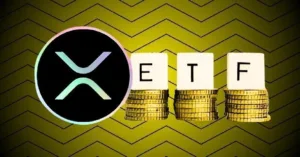T-addresses are one of the two types of addresses available for the privacy-focused cryptocurrency, Zcash, used when transparency is desired.
Zcash (ZEC) is one of the cryptocurrencies that are focused on providing their users with a way to remain fully anonymous when transacting on the blockchain via, among other things, the use of zero-knowledge proofs. Another prominent example of a similarly fully anonymous cryptocurrency is Monero (XMR).
By default, all transactions on a public blockchain, such as that of Bitcoin (BTC) or Ethereum (ETH), are fully transparent. While there are no names directly attached to the addresses, everyone can plainly see both the sending and the receiving addresses and the precise amount sent for every single transaction on the network. The emergence of the field of blockchain forensics in recent years takes advantage of this fact, as it has allowed for much easier identification and association of real people with the cryptocurrency transactions they make.
As a result of this degradation of privacy, several cryptocurrencies have emerged that make extensive use of cryptographic technologies to allow for increasingly anonymous transactions without the need to decrease the transparency of blockchains by turning them private.
Zcash is one such cryptocurrency that, in particular, takes advantage of the zero-knowledge proof (ZKP) technology, which allows one party to confirm that an event (such as a blockchain transaction) has indeed taken place, without the need to reveal any other information whatsoever.
While greatly beneficial in some contexts, fully anonymous transactions are not always desirable. Because of that, Zcash uses two different but fully interoperable types of addresses: z-addresses (private) and t-addresses (transparent).
When a user wants to send a transparent transaction – for example, for the purposes of auditing or legal compliance – they use the t-address, which will make the transaction look just like it was made on a fully public blockchain. This is opposed to z-addresses, which are fully anonymous: the only publicly known fact about the transactions between them is that they have occurred, while the sending and receiving addresses and the amounts sent remain secret.



